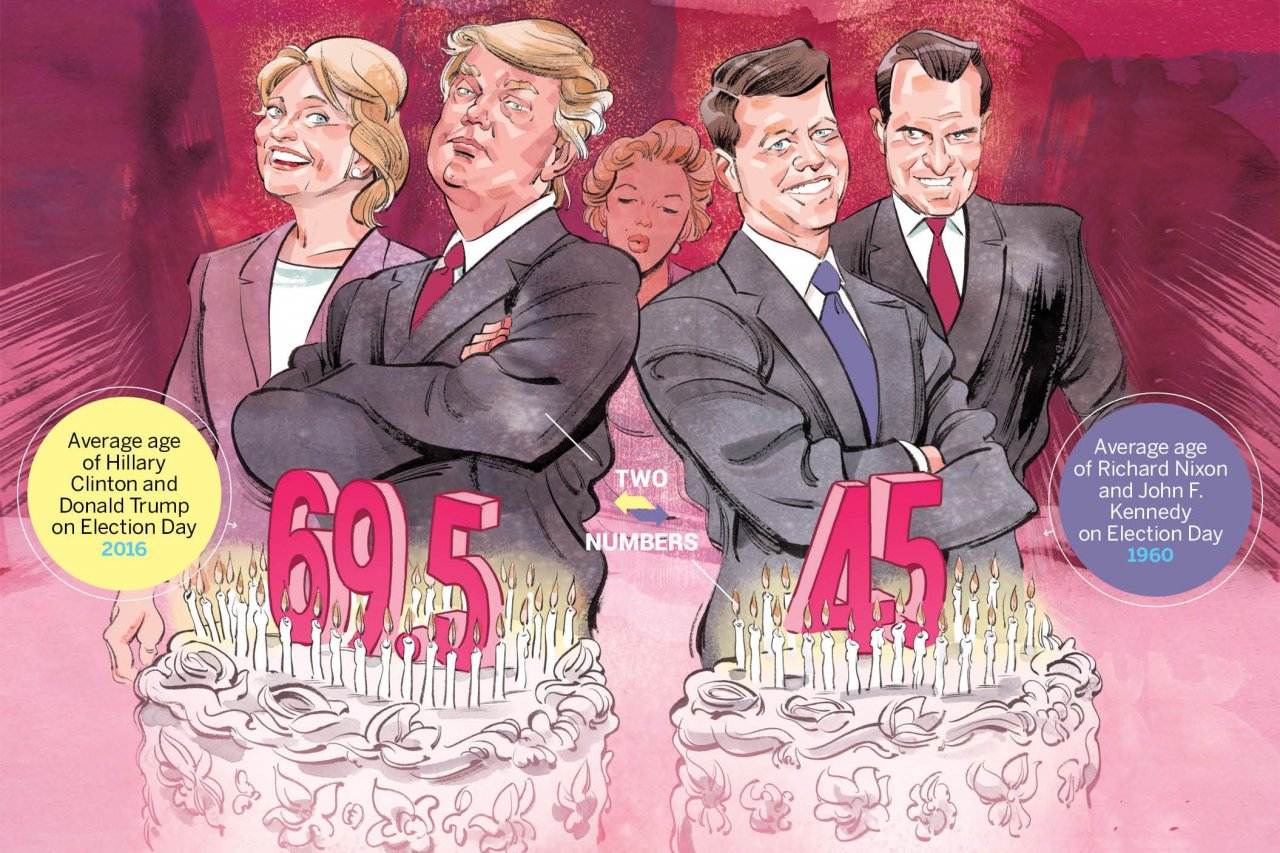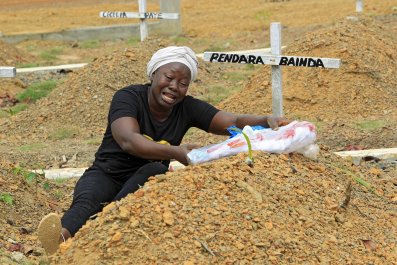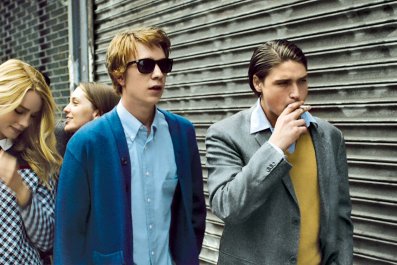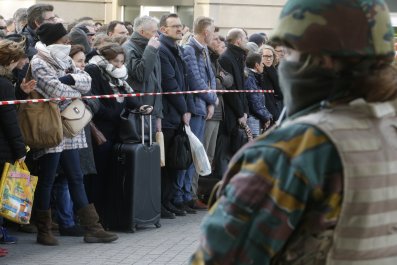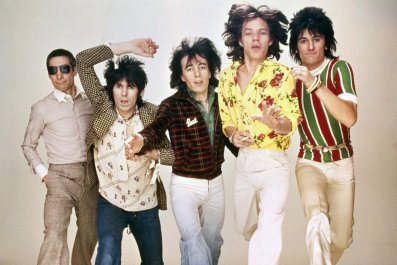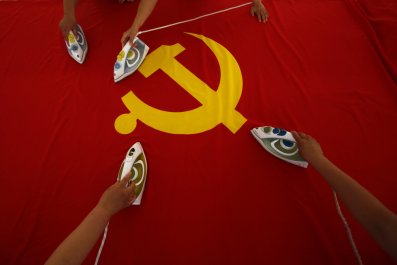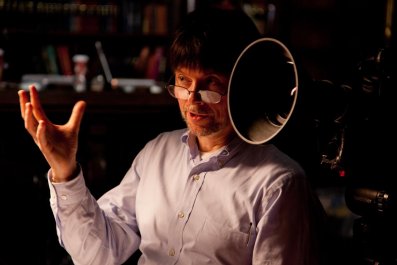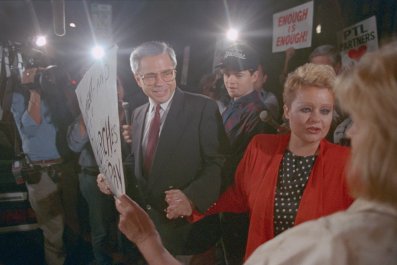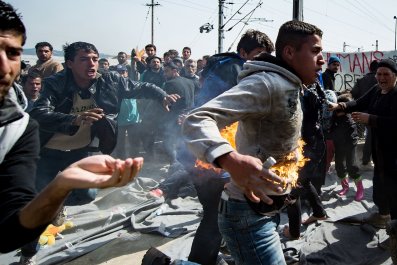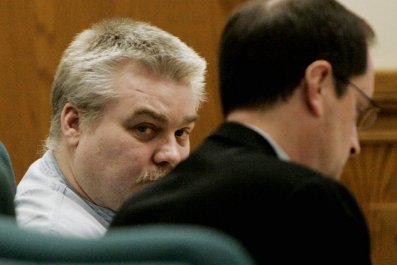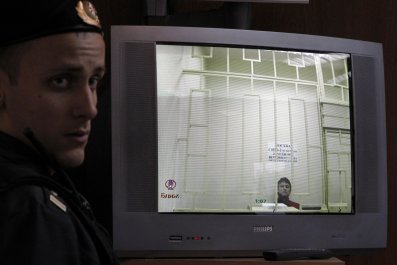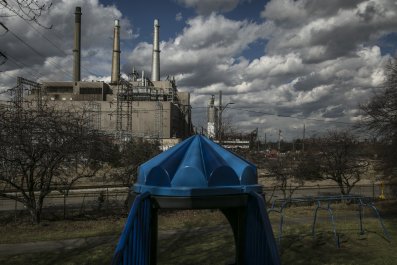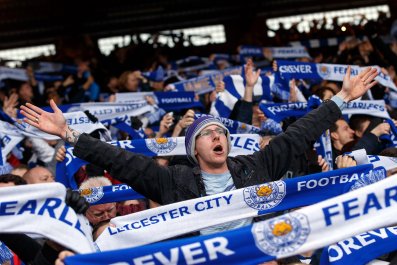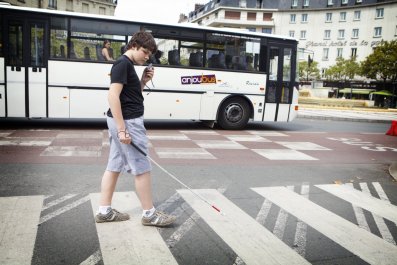When it comes to historic potential, it's hard to beat Hillary Clinton and Donald Trump: She would be the first female president, he the first to have defended his penis size on national TV.
But Trump, 69, is also running to be the oldest first-term president in U.S. history—and Clinton, the Democratic front-runner, is only about a year behind him. (Bernie Sanders, at 74, would be older than both of them should he beat the odds and wind up on the ballot in November.)
If the general election comes down to Trump vs. Clinton, as seems increasingly likely, it'll feature the oldest average contestants in U.S. history. Trump and Clinton will be 70 and 69 on Election Day, averaging out to 69.5. They currently have nine grandchildren between them and a 10th on the way. By contrast, the most youthful pair of general election candidates in modern history battled for the White House in 1960: John F. Kennedy, who was 43 on election day, and Richard Nixon, 47, averaged out to a spry 45 years.
Never before have both parties' nominees been over 65. In fact, the last time America's presidential choices were all so geriatric was 1848, when Whig candidate Zachary Taylor, 63, trounced a former president, Martin Van Buren, 65, and the Democratic nominee, Lewis Cass, 66.
Taylor died less than two years into his term. Not that you should be worried. Times have changed.
"I think 70 is the new 55," says Douglas Brinkley, presidential historian and author, most recently of Rightful Heritage: Franklin D. Roosevelt and the Land of America. "Particularly [for] the upper middle class in America, people that have access to the best doctors.… It used to be you would retire at 65. That rule has been thrown out the window." A likely turning point: the presidency of Ronald Reagan, who governed well into his 70s and famously chided a 56-year-old Walter Mondale for his "youth and inexperience."
Reagan left office just shy of his 78th birthday, making him America's oldest president, while still managing to project energy and vigor. "Reagan probably could've won a third term," Brinkley says, "even though he had to deal with cancer and the bullet wound."
By any perceptible metric, the 2016 candidates appear to be in stellar health. Donald Trump's physician has boasted that the billionaire would be the healthiest president ever elected. And even without that assurance, the campaign trail itself is "a really incredible cardiovascular stress test," as Dr. Michael Roizen, a presidential aging expert, told Cleveland.com. Look at Sanders: Despite being old enough to have lived through Pearl Harbor and attended the 1963 March on Washington, the democratic socialist has captured the youth vote—in part thanks to his energetic rallies. "Even his worst critic has to admit it's stunning the amount of energy and lucidity that he has," Brinkley says.
When a 73-year-old Bob Dole challenged 50-year-old Bill Clinton in 1996, it was perceived as a generational showdown between the Greatest Generation and Baby Boomer upstarts. But Dole was seen as frail after he fell off a stage at a rally. This time around, advanced age connotes not frailty but staying power and name recognition. Clinton and Trump have both been national figures for 20 or 30 years; they've weathered many scandals, and even the most uninformed voter knows who they are.
Clinton might wind up serving as one of our oldest presidents, but she's married to the third youngest. (Bill Clinton was 46 when he took office, the same age Ted Cruz would be if he were to become president in 2017.)
Youth, though, isn't always a political advantage. At 36, William Jennings Bryan, the youngest presidential candidate ever nominated by a major party, lost to William McKinley in 1896. And who could forget the stinging nickname Trump attached to 44-year-old Marco Rubio? History, after all, may remember the Florida senator as "Little Marco."



